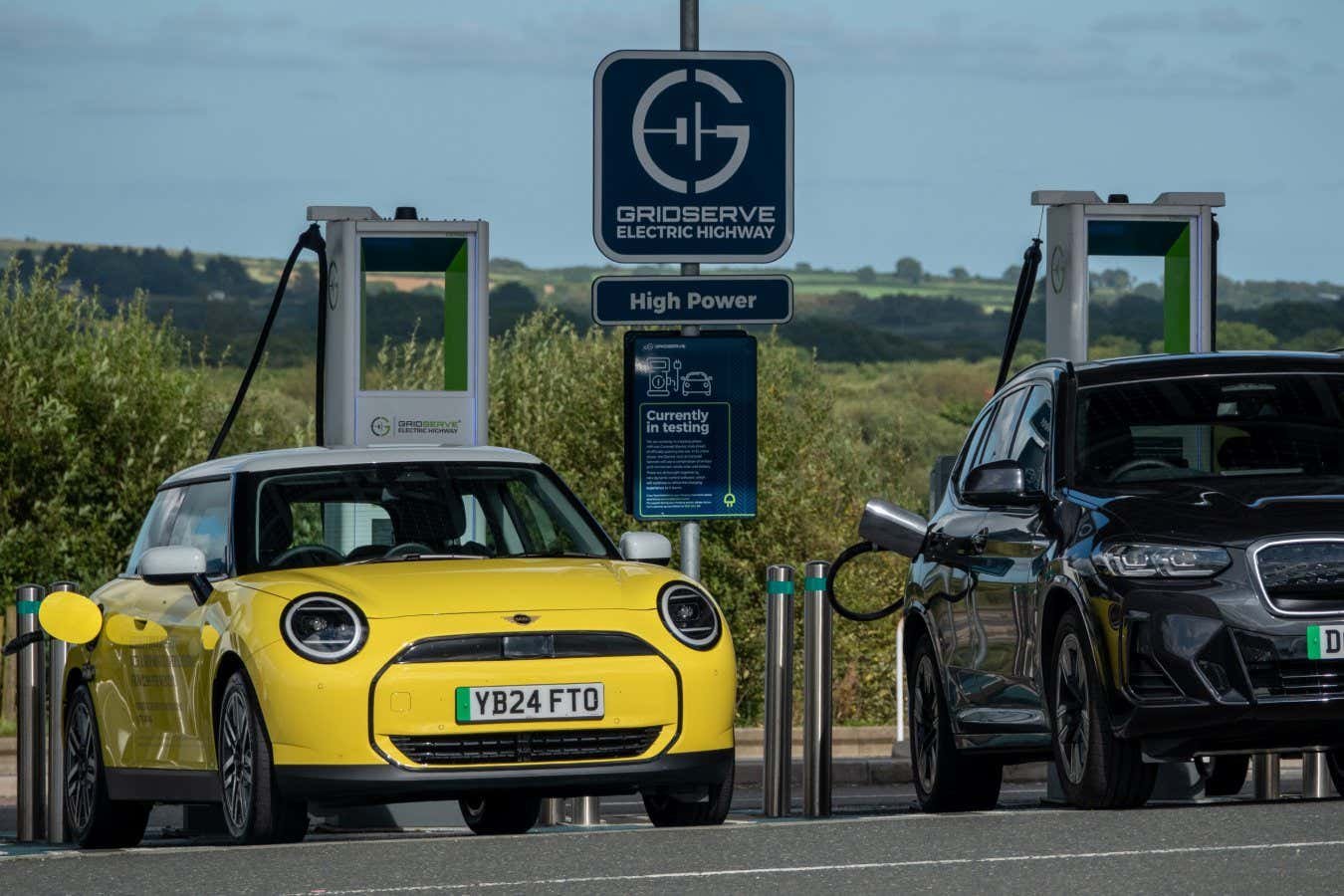An electric car charging station in Cornwall, UK
Matt Cardy/Getty Images
Electric vehicles (EVs) now last as long as oil and diesel alternatives – and their improved reliability is outpacing fossil fuel-powered cars every year because the technology is still maturing.
Robert Elliott at the University of Birmingham, UK, and his colleagues analyzed almost 300 million records from Britain’s mandatory road safety test, called the MOT, which shows the condition, age and mileage of vehicles on the road between 2005 and 2022. This covered some 29.8 million vehicles in all.
The results showed that electric cars now have an average lifespan of more than 18.4 years, surpassing the average diesel car at 16.8 years and almost matching the average petrol car at 18.7 years. The average electric car now covers 200,000 kilometers in its lifetime, surpassing the 187,000 km clocked up by petroleum counterparts, but falling short of the 257,000 km averaged by diesel engines.
Elliott says the results prove that electric cars are not only a viable alternative to petrol and diesel, but in some ways are already beating them. The research also shows that long-term reliability improves: the probability of an electric car failing and ending up on the scrap heap in a given year falls about twice as fast as for oil vehicles and about six times as fast as for diesel cars.
“The early electric cars weren’t that good and they weren’t that reliable,” says Elliott. “But the main point, I think, is that the technology is improving very quickly.”
“We’re not environmental crusaders. We just want to give the facts. Electric cars and the batteries, they’re just living longer and the technology is getting better and it would have gotten better again since this study,” he says.
Although the MOT data does not include information on how much maintenance and repair vehicles require between tests, but only their total lifetime, other research from the US has shown that the maintenance cost of electric cars is around $0.06 per mile, while internal combustion engine numbers are $0.10 per mile.
Rachel Aldred of the University of Westminster, UK, says moving away from oil and diesel vehicles will offer benefits in the fight against climate change and air pollution, but she stresses that electric cars are no silver bullet.
“It’s still a very inefficient and limited solution,” says Aldred. “If most people use a private motor vehicle to get around, then there are a whole lot of negative things about lack of physical activity, about traffic injuries and [residual] also pollution – although of course it is much better [than petrol or diesel vehicles].” Walking or equivalent, cycling and public transport should be given high priority for people who can use these modes of transport for trips, she says.
Subjects:
- transportation/
- electric vehicles
